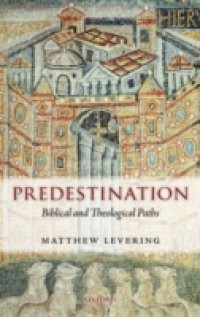Predestination has been the subject of perennial controversy among Christians, although in recent years theologians have shied away from it as a divisive and unedifying topic. In this book Matthew Levering argues that Christian theological reflection needs to continue to return to the topic of predestination, for two reasons: Firstly, predestinarian doctrine is taught in the New Testament. Reflecting the importance of the topic in many strands of Second Temple Judaism, the New Testament authors teach predestination in a manner that explains why Christian theologians continually recur to this topic. Secondly, the doctrine of predestination provides a way for Christian theologians to reflect upon two fundamental affirmations of biblical revelation. The first is God's love, without any deficiency or crimp, for each and every rational creature; the second is that God from eternity brings about the purpose for which he created us, and that he permits some rational creatures freely and permanently to rebel against his love. When theologians reflect on these two key biblical affirmations, theygenerally try to unite them in a logical synthesis. Instead, Levering argues, it is necessary to allow for the truth of each side of the mystery, without trying to blend the two affirmations into one. Levering pairs his discussion of Scripture with ecumenically oriented discussion of the doctrine of predestination in through the ages through the figures of Origen, Augustine, Boethius, John of Damascus, Eriugena, Aquinas, Ockham, Catherine of Siena, Calvin, Molina, Francis de Sales, Leibniz, Bulgakov, Barth, Maritain, and Balthasar. He concludes with a constructive chapter regarding the future of the doctrine.

